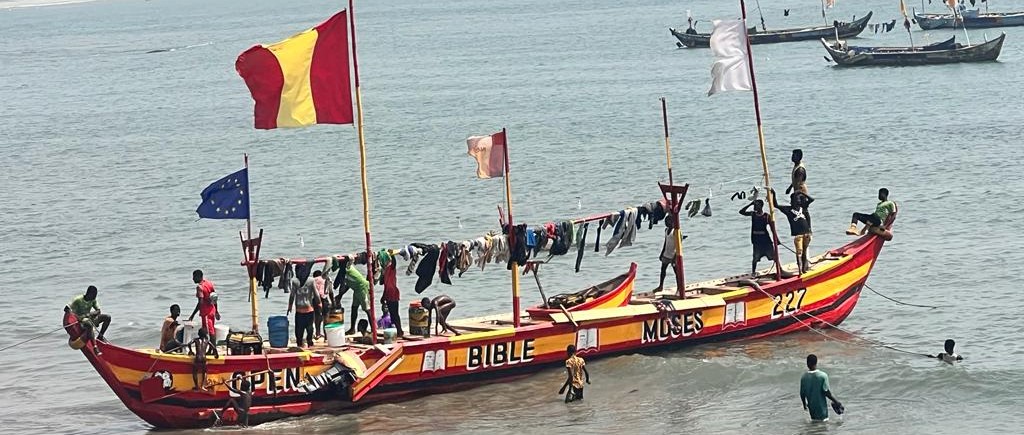OVERVIEW
Coastal marine ecosystems are threatened by multiple human-induced stressors, ranging from global stressors such as climate change to local pollution, habitat loss and over-exploitation of resources. In general, cumulative effects of stressors on the marine ecosystem are understudied and with respect to tropical ecosystems, knowledge is limited. In this course, we will discuss the sources, effects and potential solutions to climate change, pollution and unsustainable fisheries in tropical marine ecosystems, and introduce methods to experimentally study the effects of multiple stressors (including emerging pollutants) on organisms. The course will offer the students up-to-date knowledge of marine stressors and their interactions through lectures, group work and laboratory experiments illustrating the synergistic effects of the different stressors. Emphases will be placed on experimental design and data analysis.
TARGET GROUP
The course is designed for PhD and master students as well as young professionals who are working on aquatic environments in general. Suitable academic background and areas of expertise of applicants must include oceanography, marine/aquatic ecology, pollution and climate change, environmental science, chemistry, fisheries science & management, coastal management, or management of freshwater or marine environments and their resources. The course is open for West Africans.
COURSE STRUCTURE
The course consists of lectures and group work focusing on different aspects of multiple stressors, hands-on laboratory experiments, presentations and a final seminar, where the results of the laboratory experiments undertaken during the course will be presented. Each day will start with a lecture on the day’s theme, presenting the stressor, its source(s), and its main known consequences in marine systems. The lecture will be followed by group work where the students will discuss possible solutions to the problem and present their ideas for the rest of the class. In the afternoons the participants will work on simple eco-toxicological experiments, investigating lethal or sub-lethal effects of pollutants on diverse plankton organisms at different stressor levels. In groups, the participants will plan, design and conduct a laboratory experiment, paying attention in the formulation of hypothesis and data analysis, and present their results in a seminar during the last day of the course.
TOPICS BY DAY
Day 1: Multiple stressors in tropical marine environment and experimental design
On the first day of the course, an overview will be given on the different stressors that influence marine ecosystems, their anthropogenic sources, geographic variation and socio-economic effects. We will also discuss why tropical environment is particularly vulnerable to stressors. In addition, emphasis will be placed on the methods used in investigating the effects of stressors in marine environments and coastal communities, including topics covering hypothesis testing, experimental design and analysis.
Day 2: Climate change and invasive species
On the second day of the course the main ecosystem effects of climate change, and how temperature increase is expected to influence organisms, populations and ecosystems in the tropical areas will be presented. We will also discuss the sources and threats of invasive species, as well as how increasing temperature may promote range extensions of these organisms.
Day 3: Pollution: Oil, heavy metals and plastic
On the third day, the main sources and effects of oil, heavy metals, emerging contaminants, and marine litter in the marine environment will be introduced. The day’s programme will also highlight how these compounds interact to induce synergistic or antagonistic effects in the ecosystems.
Day 4: Fisheries management
This topic will address important contributions of the fishing industry globally in terms of food and nutrition security, income, employment, tourism, and cultural values. Special reference will be made to West Africa relative to sustainable fisheries management efforts, challenges and opportunities to the industry and society. A field excursion to a local fish market will be undertaken where the students will interact with local fishermen and women.
Day 5: Eutrophication and sewage
On this day, the course will focus on the causes, processes and ecological impact of eutrophication in the marine environment, using examples from tropical environments. Allochthonous sources of nutrient to the marine environment with special emphasis on sewage will be discussed. Preventive and remediation approach to eutrophication would be highlighted. Finally, emerging contaminants in the marine environment will also be introduced.
LEARNING OUTCOMES
After completing the course the participants will be able to:
- list the main anthropogenic stressors and their sources in tropical marine environments, using the Gulf of Guinea as an example
- describe the main (known) effects of multiple stressors in tropical areas, including both effects on the marine ecosystems and their socio-economic consequences to the coastal communities
- set up testable hypotheses and design an experiment or socio-economic field study to investigate the effect of a stressor on planktonic organisms or the potential consequences of coastal degradation for local communities, respectively
- conduct simple laboratory experiments on the effects of stressors on plankton community
- analyze, interpret and orally present results from an experiment or a socio-economic field study
- appreciate the complex interactions between anthropogenic stressors, ecosystem properties and coastal livelihoods, as well as the difficulties to extrapolate laboratory results to the natural environment
- propose technological or management solutions that could be considered to improve the state of the marine environment in the coast of Ghana and reduce the socio-economic consequences of coastal degradation
Learn more about HOTSPOT Project:
More information can be found at www.hotspot-ghana.net
Sponsorship:
The course is organized jointly by the Technical University of Denmark (DTU) and The University of Cape Coast (UCC). The course is supported by the Ministry of Foreign Affairs of Denmark through the DANIDA Project (HOTSPOT2). Participants are encouraged to arrange for their own travel and accommodation; for help with accommodation, please contact ccm@ucc.edu.gh, vera.kudjoe@ucc.edu.gh
The course is equivalent to 5 ECTS credits. The students will receive a Certifcate after completion of the course.
Total Number of Participants:
Applications of 20 Students and Professionals will be selected on a competitive basis.
Learn more & apply:
More information and application forms can be found at www.hotspot-ghana.net; ccm.ucc.edu.gh. Please send the completed application form to https://ccm.ucc.edu.gh/course/multiple-stressors-tropical-marine-environments/registration

